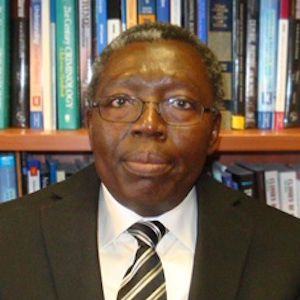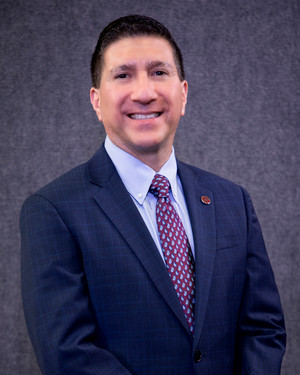Dustdevil Diversity Spotlight: Dr. Peter Haruna

This is part of a series of interviews highlighting diversity at TAMIU. On the occasion of National African American Heritage Month, this interview features Dr. Peter Haruna, TAMIU professor of Public Administration. Dr. Haruna recently received an award on behalf of TAMIU at The Texas A&M University System (TAMUS) Chancellor's Summit On Diversity, Equity, And Inclusion Awards Ceremony.
From Rural Africa to University Student and Full Professor
Tell us where you are from and what you do here at TAMIU?
Originally, I come from Ghana, where I was born and raised. Ghana is a small, young but diverse country with about 26 million people. I have been teaching courses in government and public administration since January 12, 2000. In addition, I have been doing research mostly by applying models of government and public administration to examine progress that Ghana and other African countries have made since attaining self-government.
How do you feel your contributions impact TAMIU, the community and the world around you?
Assessing how my contributions impact TAMIU and the community is hard. However, I felt excited when the University promoted and tenured me, which is the ultimate dream of every academic. In academic traditions, we value promotion and tenure as ultimate validation of the work we do in terms of teaching, research and service. When the University presented me with certificates of appreciation as recognition for rendering several years of service, I felt excitement and a sense of fulfilment. In addition, my peers have selected me for competitive awards and I consider those as means of validation as well. Most importantly, when students select me to cord or hood them at graduations, I often feel a sense of satisfaction that in one way or another I have contributed to their achievement.
Who has been your greatest inspiration?
My inspiration comes from a wide range of people, including family members, friends, former teachers, and supervisors. My Mom raised many of us single-handedly after Dad passed when I was just in junior high school. Even with her rudimentary appreciation for formal education, she encouraged me and spent the little that she had to put me through school. To this day and long after her passing, I am still in awe about her dedication and love. Of the several teachers and mentors that I encountered along the way, my college professor who taught a course on Old English stands out. At my first civil service job in Ghana, my supervisor always insisted that we should look out for the vulnerable and disadvantaged clients. That sentiment has stayed with me and influenced my approach to teaching, research, and service.
Please share with us your proudest accomplishment to date?
That I went to and stayed in school is itself one of the proudest accomplishments in my life. At a time and place where herding cattle and goats was the norm and responsibility for kids my age, not even in my wildest imagination could I have imagined myself completing grade school. My parents’ most precious goal was for us to grow up, get married, and raise families. For me going to school was an accident and completing it was another accident. But the greatest accident of all was when I made the grades to qualify for admission to pursue college education in Ghana’s flagship—University of Ghana. My Mom sold nearly every single possession to raise the funds needed for my bus fare from our rural community to the capital city. That year, only seven of us from my high school made it to college. That probably must count as one of my proudest achievements because without it I might not be here today.
Tell us what you’re doing today academically, career or life-wise and what your future plans are?
First, I am preparing for my spring classes—government and administrative law. I am thinking not just about the readings, discussions, and assignments, but also about how to build lasting relationship and trust with students. In short, I am thinking about how to inform, influence, and inspire young people. Second, I am preparing two papers scheduled for presentation at the American Society for Public Administration Annual Conference in California in April. Finally, I am planning for the pending MPA program site visit as a part of our reaccreditation review. I look forward to receiving the site visit team and working with them to accomplish the tasks.
Is diversity important at university campuses, at work and overall? Why?
I think we have gone past the question of whether diversity is important for university campuses and workplaces. Courses on Women, African American, Asian, and Hispanic Studies are commonplace in curricula and constitute legitimate areas of inquiry. These courses expose the histories and contributions of minority populations to human civilization not only in the U.S. but around the world.
Why do you celebrate National African American Heritage Month?
I do not pretend to be an expert in the background of National African American Heritage Month as it evolved and changed in the US. Nonetheless, the narrative that many people will agree on is that since 1926, National African American Heritage Month has been dedicated to the common cause of uplifting the human condition and celebrating freedom and liberty. 2020 is significant because it marks the 150th anniversary of the passage of the Fifteenth Amendment of the US Constitution that gave Black men the right to vote for the first time after the Civil War. Against this background, we celebrate the heritage and emancipation of peoples of African descent—from Brunei to Brazil, from Harlem to Hamburg, and from Barbados to Birmingham, Alabama.

